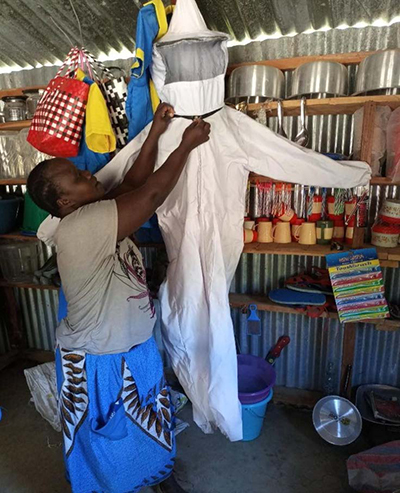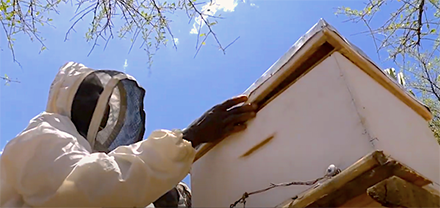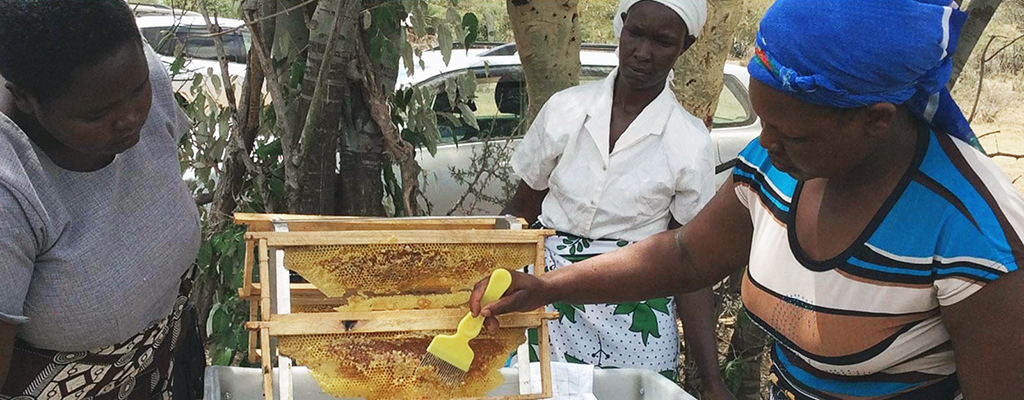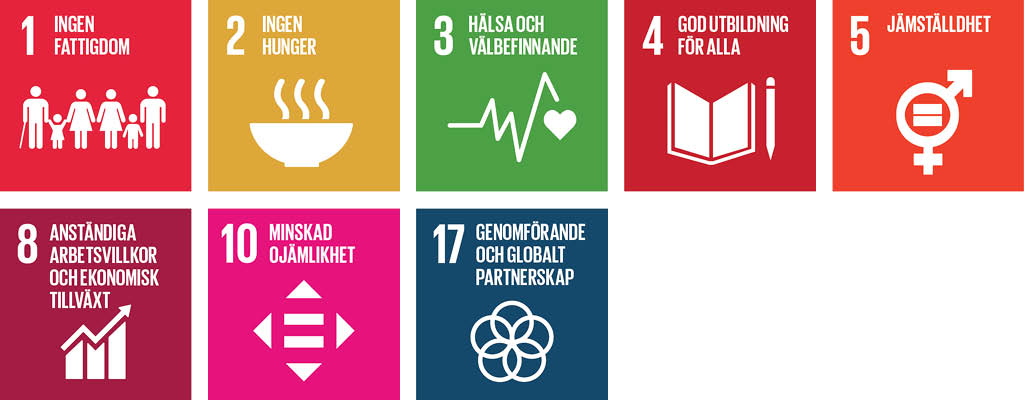
Beekeeping project in Kenya
Finja supports beekeeping project in Kenya
We support Hand in Hand’s project BEE – for honey and money – to help vulnerable female small farmers earn a living in a way that also promotes future generations. The project is another investment from us at Finja to contribute to female entrepreneurship and to protect the environment and sustainability, something that is close to our hearts.
BEE – for honey and money
In Kenya, honey is a sought-after product, and by training women to be beekeepers, good conditions are created for a stable livelihood while also benefiting biodiversity. The project combines Hand in Hand’s proven entrepreneurship training with training in modern beekeeping and honey production.
The project has just started in 2022 and will last for three years. We at Finja look forward to taking part in the development during the year and are happy for the opportunity to contribute to this important cause.
The situation for Kenyas farmers
As much as 80 percent of Kenya’s population are small farmers and depend on their own production for both food for the day and income. Their surplus in turn supplies millions of other households with food. 2020 was a particularly difficult year as dry spells coincided with the Covid-19 pandemic and an intense locust invasion, turning positive growth into an economic downturn, with the agricultural sector particularly vulnerable. During the year, unemployment in Kenya rose from 5 to 23 percent and the number of poor people increased from 33 to 37 percent of the population.
The condition of ecosystems has worsened and the effects of climate change are very evident in Kenya, threatening not only biodiversity, but also people’s livelihoods. Now agriculture needs to be adjusted and adapted in order to be a stable and sustainable source of income in the long term. By diversifying their farms and engaging in beekeeping, these farmers create more sources of income, they get a more varied diet and they contribute to preserving or increasing the biodiversity of the area.

Why honey?
More than two-thirds of global food production depends in some way on pollinators. But populations of insects including bees are declining dramatically – and threats from human impact appear to be more serious than scientists have so far thought.

An effective method to promote biodiversity is beekeeping. It does not compete for nature’s resources to the same extent as other cultivation – instead, the industry contributes with pollination and encourages an increased diversity in the crops, which creates greater yields and increased resistance to climate change.
In Kenya, honey is also a sought-after product and demand far exceeds supply. This also creates good conditions for economic sustainability and a stable livelihood for the beekeepers.

Finjas cooperation with Hand in Hand
Finja has had a collaboration with Hand in Hand for over 10 years. They work to eradicate poverty by training women so that they can start businesses, create new jobs or further develop existing businesses. By being a donor to Hand in Hand, we at Finja wish to contribute to a sustainable environment and sustainable social development.
Global sustainability goals
The project in Kenya focuses on five of the global sustainability goals:




